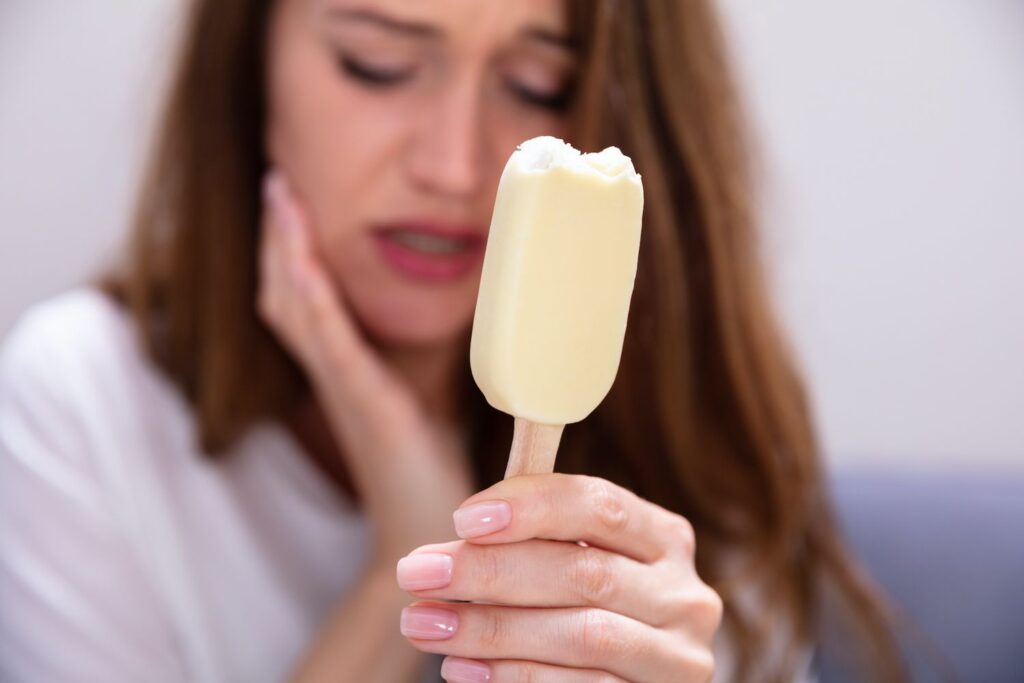If you have ever experienced a sudden, sharp pain in your teeth while eating or drinking something cold, hot, or sweet, you may have sensitive teeth. Tooth sensitivity is a common problem that affects many people and can have a negative impact on your life and health.


What are the Impacts?
There are many different ways that sensitive teeth can disrupt your life.
Eating Habits
Sensitive teeth can make it difficult to enjoy your favorite foods and beverages. Foods and drinks that are cold, hot, or sweet can cause sudden, intense pain in your teeth, making it uncomfortable or even painful to eat or drink them. This can lead to a restricted diet, which can cause nutritional deficiencies and other health problems.
Oral Hygiene
Sensitive teeth can also make it difficult to maintain good oral hygiene. Brushing and flossing may cause pain and discomfort, leading to inadequate oral hygiene and an increased risk of tooth decay, gum disease, and other dental problems.
Overall Health
Poor oral health can harm your overall health. Research has linked gum disease to an increased risk of heart disease, stroke, and other health problems. If you have sensitive teeth, you may be more likely to develop gum disease and other oral health problems, harming your overall health.
Quality of Life
Tooth sensitivity can hurt your quality of life. It can cause pain, discomfort, and anxiety, making it difficult to enjoy everyday activities. Sensitive teeth can also cause embarrassment and self-consciousness, leading to social isolation and reduced quality of life.
Dental Treatment
Sensitive teeth can also make dental treatment more difficult and uncomfortable. If you need a dental procedure, such as a filling, root canal, or tooth extraction, sensitive teeth can make the experience more painful and uncomfortable.
Managing Tooth Sensitivity
Fortunately, there are several steps you can take to manage tooth sensitivity and prevent further damage to your teeth and gums.
Practice Good Oral Hygiene
Good oral hygiene is essential for preventing tooth decay and gum disease. Brush your teeth twice a day with a soft-bristled toothbrush and fluoride toothpaste. Floss at least once daily to remove plaque and food particles between your teeth.
Use Desensitizing Toothpaste
Desensitizing toothpaste can help to reduce tooth sensitivity by blocking the channels that transmit pain signals to your nerves. Use a desensitizing toothpaste that contains potassium nitrate or strontium chloride for at least four to six weeks to see results.
Limit Acidic Foods and Beverages
Acidic foods and beverages can erode tooth enamel and make teeth more sensitive. Limit your consumption of citrus fruits, carbonated drinks, and acidic foods like tomatoes and pickles.
Wear a Mouthguard
If you grind your teeth at night, a mouthguard can help to protect your teeth and reduce sensitivity. Talk to your dentist about getting a custom-made mouthguard that fits your teeth.
Visit Your Dentist Regularly
Regular dental check-ups and cleanings can help to prevent tooth decay and gum disease, which can cause tooth sensitivity. Your dentist can also recommend additional treatments, such as fluoride varnish or dental bonding, to help reduce sensitivity and protect your teeth.
